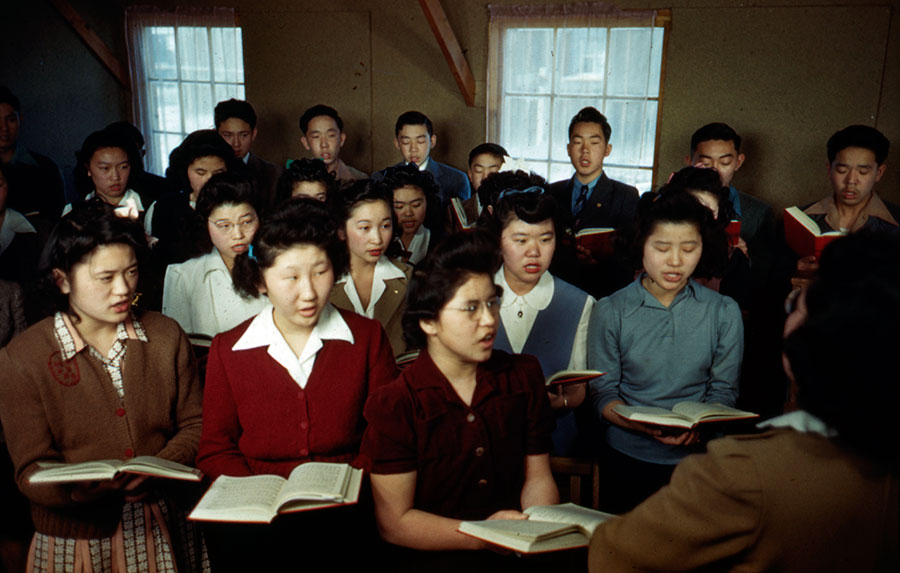Servants of Christ and People
January 29, 2017
When the 110,000 American citizens and immigrants of Japanese descent living on the West Coast were taken without due process into ten “Relocation Camps” by the federal government in the first year of the US’ involvement in World War II, they set about immediately organizing places of worship through which to seek solace and strength.
Protestant congregations vital to this effort could no longer afford to pay their pastors, however. The government capped the monthly pay an incarceree could receive for his or her employ at $19 for professionals, such as doctors and teachers, with clerks receiving $12 per month. (In contrast, white-collar working women earned about $125 monthly at this time.) As the government followed a strict separation of church and state, places of worship would have to fund their own religious leaders.
The ecumenical Protestant Commission for Japanese Service convinced various Protestant denominations to provide a monthly stipend for the incarcerated pastors serving so critically in the camps. At the insistence of clergy wives like Yoshiko Kawamorita and Mrs. Tokujiro Horikoshi, the Protestant denominations took an unprecedented step by providing a monthly $12 allowance to the ministers’ wives as well.
Yoshiko was born in Japan and had eight years of high school and seminary education at the Presbyterian Miyagi College before she moved to the United States. She would minister in northern California for 25 years beside her Presbyterian pastor husband, Dr. Eiji Kawamorita. A missionary worker, pastor’s wife, and mother of six, her duties did not ease within the confines of the Topaz camp. Unlike some Issei, or first-generation Japanese Americans, who saw their first “vacation” in decades turn into an extended retirement in the incarceration camps, Yoshiko remained busy visiting the “sick or lonesome,” helping the poorest of the poor, and taking care of her four children who still lived at home.In a letter to the Presbyterian Home Missions office, Yoshiko wrote that her husband used most of his salary for his work, leaving her with little either to provide food for her children between the communal mealtimes or to clothe them. Without a stipend of her own, she would be forced to give up her service to the church and seek other work in the camp instead.
Presbyterian pastor Tokujiro Horikoshi of Heart Mountain camp wrote to the Presbyterian Mission Board thanking them for recognizing his wife’s status as a “regular religious worker.” He mentioned the growing popularity of her work among the Issei women and that her speaking calendar was full for the coming month.
These women were, as Yoshiko noted, as much servants “of Christ and for people” as their husbands and sons who were ordained. We can rejoice that in a time of great injustice and harm, our church acknowledged the invaluable witness and work of these clergy wives and ensured that they received compensation for their service.
Beth Shalom Hessel, M. Div, Ph.D., executive director, Presbyterian Historical Society, associate stated clerk, Office of the General Assembly
Today’s Focus: Presbyterian Historical Society
Let us join in prayer for:
PC(USA) Agencies’ Staff
Krystal Salazar, PMA
Sabino Salazar, PMA
Let us pray
Christ our Lord and Brother, you call us to the dusty and forgotten places of this world to minister with courage to those who need a word of hope. Help us to be servants of Christ and for all people. Amen.
Revised Common Lectionary Readings for Sunday, January 29, 2017, the Fourth Sunday in Ordinary Time (Year A)
First Reading Micah 6:1-8
Psalm 15
Second Reading 1 Corinthians 1:18-31
Gospel Matthew 5:1-12
